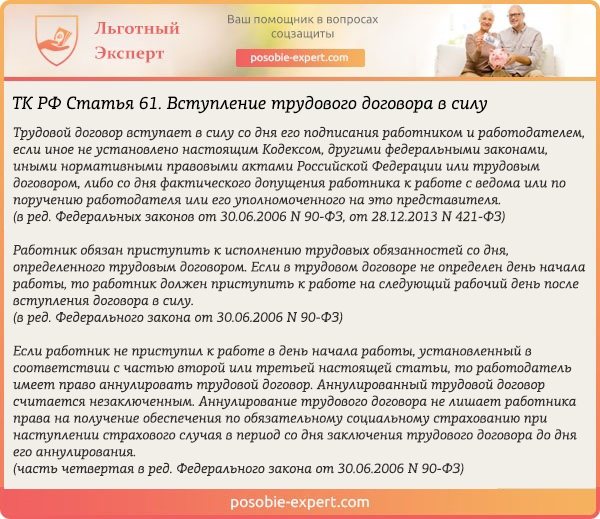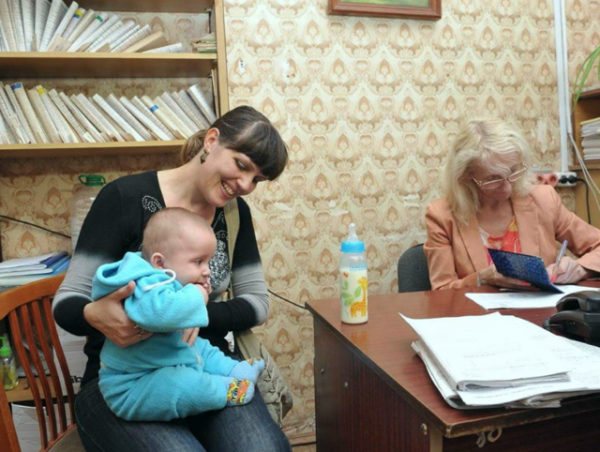The state guarantees a pregnant mother paid leave, which is divided into two parts. The first is maternity leave, which in turn is divided into periods before and after childbirth. Depending on the severity, both periods can last from 140 to 194 days. After the end of maternity leave, the second part begins, parental leave, lasting until the child reaches the third birthday.
Is it possible to work while on maternity leave?
Vacation for labor and employment is actually standardized sick leave. There are four timing options depending on the conditions of pregnancy.
| Vacation dates | Causes |
| 70 days before and after birth, total 140 days | Pregnancy proceeds without complications |
| 70/86, total 156 days | Complications, caesarean section and other obstetric operations |
| 90/70, total 160 days | Pregnancy in regions with increased radioactive or chemical background |
| 84/110, total 194 days | Multiple pregnancy |
Important! The duration does not depend on the specific date of birth. For example, if a mother used only 50 days of the 70 prenatal period, then the unused days are carried over to the postpartum period.
When adopting an infant and surrogacy options, a working woman is granted leave without the prenatal part. In this case, the time frame will be 70 days when taking one child and 110 days for two or more.
Legal basis for working during maternity leave
The features of women's labor during the duration of the decree are described in Chapter 41, Articles 255, 257 and 258 of the Civil Code of the Russian Federation. The articles regulate the procedure for a woman going on maternity leave, methods of social protection, and the rights and obligations of the employer.

Peculiarities of women's labor during maternity leave
Article 260 specifies the possibility of combining regular annual leave with sick leave under the BiR. The decision cannot be challenged by the company; all that is needed is a statement at the initiative of the employee. The annual vacation period can be added both before and after Birth, depending on the wishes of the pregnant woman.
The birth of a disabled child does not provide additional preferences in terms of the duration of maternity leave. Article 262 of the code approves for parents of a disabled child 4 additional days off per month for two. Article 263 specifies the right of parents to receive an additional two-week unpaid leave. There are no improvements to the amount of payments or terms of maternity leave.
Important! Payment for sick leave according to BiR is made for the time that the employee does not actually work. If you leave early, the benefit will be cancelled.

Application for maternity leave
After the end of the B&R period, it smoothly flows into maternity leave. The maximum duration of paid child care time is 1.5 years, as stated in Article 256 of the Civil Code. Unlike leave under BiR, any legal guardian who actually cares for the child can go on maternity leave. In total, this type of leave can last up to 3 years, but for the last year and a half the guardian will be on it at his own expense.
Important! While on maternity leave, you are allowed to work part-time and have the right to change your status at any time without restrictions. This is due to the fact that maternity leave under BiR is actually sick leave, while nursing leave is social assistance from the state.
Is work allowed if a certificate of incapacity for work has already been issued, but not assigned?
On the day of receiving a certificate of incapacity for work related to the upcoming birth, the woman must inform the employer about this. If she has not done this, she must go to work and perform her duties within the framework provided by the employment contract and medical restrictions.
While the employer is not notified of the receipt of sick leave, he can demand that the employee comply with internal rules and perform high-quality work.
Conditions
The fact of receiving sick leave cannot cause a change in the working conditions of the pregnant woman. All concessions that are provided for by the Labor Code of the Russian Federation and medical recommendations must be provided by the employer as soon as the employee brings a certificate from the antenatal clinic about registration and the duration of pregnancy.
A woman who demands additional preferences, waving a certificate of incapacity for work, can be refused with a clear conscience by her superiors. Sick leave gives her the right only to complete exemption from the performance of labor functions and the replacement of wages with the payment of an insurance benefit.
Possible consequences
Games with sick leave dates for pregnancy and childbirth are disadvantageous only for the pregnant woman. The problem is that there is no legal way to receive benefits from the state and a salary, and the possibility of delaying the registration of a certificate of incapacity for work in the housing complex is prevented by the Procedure for their discharge No. 624n.
This document says that a woman needs to be put on maternity leave at 30 weeks, and in case of multiple pregnancy - at 28, doctors have no reason to postpone the start date of the period of incapacity. Strict limits and the desire to earn more before giving birth can push a pregnant woman to make a “deal” with the employer in the form of unofficial work.
In such a situation, a pregnant woman may face the employer’s dishonesty in terms of wages, but will not be able to claim protection of her rights either in the labor inspectorate or in court.
Difficulties with dates
The employee has no responsibility for failure to provide a certificate of incapacity for work, but the employer may have difficulties, because the law provides for the possibility of calculating only one type of payment: either earnings or disability benefits.
To avoid complex explanations with inspectors, management should take several safety steps:
- register the application for leave under the BiR in the journal of incoming correspondence (by the actual date of receipt);
- in the time sheet, mark the days when the employer did not know about sick leave, like workers;
- if possible, ask the pregnant woman for a written explanation of the reasons for the delay in handing over the certificate of incapacity for work;
- The order on the start of leave under the BiR should be issued on the date of receipt of documents from the employee.
Options for maintaining benefits while working
It was already clarified above that benefits are paid only to mothers who are actually unemployed. The Labor Code directly states that maternity leave is provided at the request of the expectant mother, therefore, at the request of only the employer, it is impossible to send a woman on forced days off.

Maintaining benefits when working for pregnant women
It is necessary to understand that the division “70 days before, 70 after” is conditional. A woman can submit an application at any time, the accounting department will be required to pay for all 140 days (or more) in full. At the same time, returning to work before the end of the term is possible only if a vacation waiver is issued, which automatically deprives the employee of benefits.
In general, the situation is completely identical to registration of sick leave - for the duration of the illness, the employee receives help and payments, as soon as the sheet is closed, everything returns to normal. The choice is simple: either a salary or help from the Social Insurance Fund and the employer.
Is it possible to take a deferment and leave later than the date indicated on the sick leave?
Some women fear that delaying maternity leave until later will impact financial accruals. But that's not true.
Let's say an employee has received a certificate of incapacity for work, which gives her the right to fill out an application and go on vacation. But, if a woman wants to work a little more, then she simply does not submit documents to the employer.
Advice . Despite this, it is recommended to inform the employer in advance of your decision to work a little more.
If a pregnant employee decides that it is time for her to go on maternity leave, she will simply submit a statement to the employer. Due to the fact that maternity leave was overdue, it is issued later than the date indicated on the sick leave. From this moment on, the employee is no longer paid a salary, but is entitled to maternity benefits .

It must be remembered that labor and labor leave, which is seventy days before and the same number after, begins when the woman is in the thirtieth week of pregnancy and has a certificate of incapacity for work in her hands.
Therefore, so that the employer does not worry about this, it is necessary to initially agree with him.
Most women believe that if they are not going to go on maternity leave on time, then they may not receive sick leave. This is not the right opinion. The sick leave was issued at the thirtieth week of pregnancy .
If a woman is expecting more than one baby or her pregnancy is complicated, then she is entitled to a disability certificate at the twenty-eighth week. It is necessary to receive sick leave exactly on time in any case. Whether or not to submit the document to the manager is a matter for the employee to decide on her own.
Applying for leave during maternity leave

Applying for leave during maternity leave
Combining planned and maternity leave is possible in three options:
- Planned leave is added to the start of maternity leave, allowing you to go on vacation earlier than 70 (90) days before the start of childbirth.
- Vacation pay is used immediately after the end of the B&R period.
- Unused days are applied at a convenient time after the end of the care period.
Important! Imposing maternity leave on other vacation periods is prohibited. Refusal of unused vacation days in exchange for monetary compensation is possible only upon dismissal.

Application for leave on the basis of Art. 260 TK
Continuity of term is not required. The employee has the right to use planned leave, then work a couple of days to clear the backlog of cases and then finally go on maternity leave.
You can apply for maternity leave here.
Registration for part-time and part-time work
Federal Law No. 255 regulates the amount of vacation pay and the rights of a young mother during a period of incapacity. The amount of payments throughout maternity leave is:
- average monthly earnings in the case of B&R benefits;
- 40% of monthly earnings when calculating care allowance.
To calculate the average income, the two previous years are taken into account minus official sick leave and vacations.
It turns out that in the 140-day period for pregnant women and young mothers, early return to work part-time is virtually meaningless. The salary will be approximately equal to the benefit received, and the child will be left without care during one of the most difficult periods of life.

Application for transfer to full-time work
Part-time employment makes sense when a parent goes on maternity leave. The law does not regulate free time sufficient to care for a child, so the benefit remains the same for freelancing or a 20-day work week. Article 93 of the Labor Code indicates that each specific case is individual, and sufficient work time is established by the parties to the employment agreement. At the same time, reducing working hours, for example, by an hour daily, cannot be considered a sufficient measure to continue payment of benefits. In this situation, an attempt to obtain additional income will be stopped by the Social Insurance Fund, which will recover money for the damage caused from the employer.

Labor Code of the Russian Federation Article 93. Part-time work
To summarize, maternity benefits will be canceled when you return to work. The care allowance allows you to work part-time if this does not interfere with caring for the child.
Part-time work and civil law agreements
When working in several companies on a part-time basis at the same time (often found among IT specialists and accountants), the employee has the right to receive benefits from all companies in which she has been employed for at least two years. This situation is described in detail in Article 287 of the Labor Code of the Russian Federation.

Certificate for appointment of payment of maternity benefits
To provide benefits for part-time work, each institution must provide a certificate of incapacity for work received at a medical institution and a standard application form. The issuance procedure is regulated in Order of the Ministry of Health No. 624n, specific features are prescribed in employment contracts.
Important! In places of work where the average monthly income of an employee is below the minimum wage, her benefit is equal to the minimum wage. Thanks to this, the benefit for part-time work can be higher than the woman’s usual monthly income.
Labor and employment leave is issued for each place of work individually. This means that a woman can work in one place and receive benefits in another. In the absence of a submitted application for one of the places of work, the employer is obliged to register the failure to appear as an absence for unknown reasons.
Part-time work
A pressing question is whether a woman, having taken maternity leave at her main place of work, can continue to work part-time (or vice versa).
It should be noted that although the current legislation does not provide for a ban on such a procedure, applying it, the employer will face some difficulties. If we are talking about external part-time work, the employer may not know that the employee has taken maternity leave at another place of work.
Moreover, in the letter of the Federal Social Insurance Fund of the Russian Federation dated May 24, 2012 No. 15-03-14/12-4664, the following conclusion was made. Current legislation does not oblige the insurer to check what procedure for calculating maternity benefits is chosen by the insured person, who is an external part-time worker, at another place of work.
At the same time, in the same document, the Fund indicates that the procedure for calculating benefits should be uniform, regardless of the number of policyholders assigning and paying the specified benefit to the insured person. If maternity leave for an employee at her main place of work, for example, begins before 2013, and at her place of work as a part-time worker - after December 31, 2012, the following situation may arise:
- at the place of main work, the employee will have the right to choose the procedure for calculating benefits: based on the calculation period of 12 calendar months preceding the month of the start of maternity leave, or based on the calculation period of two calendar years preceding the year of the start of maternity leave;
- at the place of work as an external part-time worker, the benefit can only be calculated from the calculation period of two calendar years preceding the year of the start of maternity leave.
In such a situation, it will be difficult to ensure a unified order.
If we are talking about internal part-time work, then the use of the specified procedure (working while on maternity leave on a part-time basis) is also extremely undesirable. Federal Law No. 255-FZ of December 29, 2006 establishes special rules for the payment of maternity benefits depending on whether labor activities are carried out with one or more insurers (employers), and not on the number of employment contracts concluded with him.
The maternity benefit is compensatory in nature and is aimed at reimbursing the employee for the average earnings lost during the period she was on maternity leave. Therefore, the same policyholder does not have the right to simultaneously pay maternity benefits and wages. In this case, there is a risk that the Federal Social Insurance Fund of the Russian Federation, having discovered that in fact the employee continued to work and her wages were accrued, will refuse to reimburse the employer for the amount of benefits paid.
Changing jobs during maternity leave

Notice of upcoming dismissal
Direct dismissal of a pregnant woman is prohibited by Article 261 of the Labor Code. An exception is the dissolution of a company with the liquidation of its assets. Nevertheless, quite often cases of reorganization arise when conditional companies A and B are dissolved with the subsequent hiring of all valuable employees to company B. Sometimes a change of job is caused by the personal desire of the employee.
Liquidation of the organization leads to the fact that the pregnant woman loses all benefits paid from her. To receive assistance from the state, a woman needs to contact the social security authorities. In this case, the financial losses will be significant: in contrast to the full average salary during the BiR period and 40% during a year and a half of care, the state pays 1,500 rubles per month for the first child and 3,000 rubles for all subsequent ones. In fact, the dissolution of the company deprives the mother of a significant amount of assistance and increases the burden on the family.

Liquidation of the organization leads to the loss of paid benefits for the pregnant woman
If it is impossible to fire a woman during the labor and economic period, then during the period of leaving and working part-time, the employer has the right to expel the employee in case of serious violations of the Labor Code. The list of such violations includes:
- systematic lateness or absenteeism without a good reason;
- appearing at the workplace under the influence of alcohol or drugs;
- theft of employer funds or property;
- gross violations of work duties.
If the mother is on maternity leave completely without going to work, then she cannot be expelled from the company’s staff or transferred to another place of work without her written consent.
Any employment in a new company during the B&R period attracts the close attention of the Social Insurance Fund. According to social services, very few employers are willing to pay a promising employee money and keep his job for a year and a half. According to Article 61 of the Labor Code, a contract can be declared invalid if a woman gets a job and immediately goes on maternity leave.

Entry into force of the employment contract
The transition to another company can be formalized either through voluntary dismissal and re-employment, or by direct transfer to another employer. The first option looks much better for the Social Insurance Fund, the second gives additional guarantees to the woman, since within a month the new company cannot refuse her to conclude an agreement.
How to spend your entire pregnancy on sick leave - is it possible? The answer is difficult, but possible. What needs to be done for this and what will be the consequences? Can I get fired from my job for this?
There are certain “rules of the game” that must be followed. You will learn how to do this from our review.
Features of obtaining sick leave during pregnancy
Generally established sick leave (leave) for pregnancy and childbirth begins 70 days before the expected birth. From this moment, the employee receives a birth certificate and “legally” leaves the labor front, not returning there until the end of her maternity leave.
MAIN QUESTION!!
But how can you take sick leave before the very “70 days before giving birth”, so much so that you can sit on it for the entire pregnancy?!
First, let's remember two points:
- a pregnant woman, like other people, has the right to take regular 2-week sick leave at any stage of pregnancy (i.e. before the start of official maternity leave). Feeling unwell, allergies, colds - all these are reasons to go to the doctor and go on sick leave.
- Previously, doctors did not prevent pregnant women from taking sick leave at all and gave them for any reason without any problems. Now it has become a little more difficult.
Internal control over doctors from social insurance has increased - after all, it is from its funds that sick leave is paid. Therefore, a pregnant woman often has to “put pressure” on the doctor to issue a sick leave.
As the doctors themselves say, they now try to give sick leave only when there is really an indication for it. Consequently, the task of a pregnant woman in this situation is to effectively demonstrate her malaise, toxicosis, etc.
The following have the right to open a certificate of incapacity for work for a future woman in labor:
- supervising gynecologist (he also prescribes free vitamins for pregnant women);
- therapist;
- cardiologist, immunologist, neurologist and other specialized specialists.
But the trouble is that standard sick leave lasts a maximum of 15 days! And the main problem is how to extend it for the entire duration of pregnancy? Here events need to be considered according to two scenarios.
How to stay on sick leave throughout pregnancy
The first scenario is when a woman is really sick, and her work threatens her health. The second scenario is a simulation, i.e. you don’t have a real illness, but you don’t want to work. Each scenario has its own plan of action.
Scenario #1
The fact is that only a medical commission has the right to extend standard sick leave for a period of more than two weeks. The basis for such a decision is medical opinions, test data, examination results, and so on.
In the most difficult cases, the commission may issue a verdict to increase the duration of sick leave to ten months. It is clear that this period will automatically mean release from work for the entire period of pregnancy and even more.
Such an extension of sick leave may be followed by a referral to a hospital for conservation, sanatorium-resort treatment, etc. But as you understand, all this is only suitable for those who actually have complications. What should those who have no complications do, but don’t want to go to work?
Scenario #2
In this situation, you need to use more cunning tactics. It includes not only sick leave, but also a number of other mechanisms.
Firstly, despite the fact that one doctor cannot give you sick leave for more than 2 weeks, the law does not prohibit you from taking two (or more) sick days in a row (two weeks each), but from different doctors.
That is, you should alternately and as often as possible take sick leave from different doctors. Two weeks with a therapist, two weeks with a neurologist, two weeks with a gynecologist, etc. This is exactly what tactics should be based on.
The main thing is to be convincing! As we noted above, recently doctors have become “greedy” in issuing sick leaves to pregnant patients.
Know how to “put pressure” on the doctor, because by and large, he has no right to refuse you. And there may be a “heap” of reasons why you cannot go to work - toxicosis, vomiting, blood pressure. Use your imagination - it will become your main assistant in deciding how to spend your entire pregnancy on sick leave.
In addition, each woman may have her own characteristics in her relationship with her treating or supervising doctors. In some places you will actually have to invent non-existent syndromes, and in others you just need to directly ask for sick leave.
IT IS IMPORTANT TO KNOW!
The Labor Code does not contain provisions allowing to fire a person for frequently taking sick leave. But at the same time, it contains rules that directly prohibit the dismissal of a pregnant woman for any reason!
Secondly, since it will be difficult to continuously “jump” from one sick leave to another for several months in a row, use your other rights, namely:
the right to the next paid leave (in this case it is granted “out of turn”, even if the woman has worked for less than 6 months);
paid days for medical examination;
the right to lighter work and shorter working hours.
All this together can provide the result you need and solve the issue of how to spend your entire pregnancy on sick leave.
Let's look at this in more detail.
Additional benefits, mechanisms and loopholes
Annual paid leave + sick leave
Unlike her work colleagues, the pregnant woman herself decides when to go on her next annual leave. The rule “compulsory six-month service does not apply in her case” - Article 122 of the same Labor Code of the Russian Federation took care of this.
Many women prefer to take this leave immediately before going on maternity leave, that is, they first take annual leave and then immediately go on maternity leave. Another option can be used.
First, take regular sick leave for 2 weeks. After it ends, you take annual paid leave, then again sick leave for 2 weeks, and only then go on maternity leave. The main thing is to correctly calculate the entire schedule so that you reach the finish line exactly on the date when maternity leave begins.
Additionally, we note that you have the right to take a two-week sick leave not only before and after the vacation, but also during it (in addition to those taken before and after the vacation)!
If during a vacation a citizen goes on sick leave, then this leave is extended for a period equal to the sick leave. This is the procedure enshrined in the Labor Code of the Russian Federation.
So, the final scheme with the usual two-week sick leave and annual leave might look like this:
sick leave 2 weeks → annual leave (sick leave within vacation) approximately 2 weeks → extension of leave 2 weeks → sick leave 2 weeks → maternity leave. On average, it turns out that you will no longer go to work for 8 weeks, i.e. two months.
Paid time off for medical examinations and doctor visits
Days for medical examinations and visits to doctors will fit very harmoniously into this scheme. There is a statutory standard that describes how many doctors and when a pregnant woman should go.
Stretch out this process! Moreover, according to Article 254 of the Labor Code of the Russian Federation, the average salary is paid for these days.
In addition to medical examination, the law not only allows a pregnant woman to go to a clinic (consultation, hospital) for any need that arises, but also does not limit the number of such visits.
You have the right (without taking sick leave) to go to the doctors at least every day - to listen to the rhythm and beating of your heart, measure your blood pressure, or simply want to talk with a psychologist or psychotherapist.
The main thing is, do not forget to take certificates.
Finally, we’ll tell you about two more interesting ways to minimize the time spent at work.
Transfer to light work as a reason not to go to work
If there is a medical report, the employer is obliged to transfer the pregnant woman to light work. What is the main “trick” here? There are several of them.
First, payment. If a woman is transferred to light work, the employer is obliged to keep her the average pay for her previous job!
Secondly,
THE MOST IMPORTANT!!
If the employer is unable to find an easier work option for a pregnant woman, then she must be released from work altogether. At the same time, she also retains the average wage! The release will last until a lighter work option is found.
To switch to light work, you will need an appropriate medical certificate. Please contact your gynecologist or therapist with this question. Most likely they will help you.
Additionally, the certificate from the medical institution stipulates the need to exclude the impact of negative production factors on their patient. Such factors include ultrasound, radio emissions, vibration, prolonged computer work (more than three hours a day) and even the notorious draft.
The presence of a draft and computer work in the list of dangerous factors is actually a universal reason for demanding a transfer to light work. Use this right between sick days when you have to go to work.
Part time
Every pregnant worker can, if she wishes, switch to part-time work or a shorter week. She can make such a decision at any stage of pregnancy and regardless of whether the employer likes it.
The pregnant woman also decides on her own how much to reduce working hours and then agrees with the employer.
This right is officially enshrined in the Labor Code. The employer has no right to interfere with its implementation.
To switch to a shortened working day, it is enough to write an application and submit a pregnancy certificate to the HR department.
True, this option (unlike lightweight labor) has a significant disadvantage. Pay will be reduced in proportion to the time worked. But there are also significant advantages:
Work experience and workplace are preserved;
The length of leave will not change;
The amount of maternity leave will not change (it is calculated for the previous two years);
The employer makes all necessary contributions for the employee;
You don’t have to constantly deal with sick leave issues; you simply go to work exactly as many hours as you consider comfortable for yourself.
This option is suitable for those who are willing to sacrifice wages for the sake of their own peace of mind, while maintaining all the other benefits of official employment.
Conclusion
Thus, in order to spend the entire pregnancy on sick leave, it is necessary to alternately take sick leave from different doctors. In addition, the entire arsenal of labor rights available to a pregnant woman should be used.
Among them are extraordinary annual leave, time off, days for medical examination, constant visits to doctors for every reason, the right to lighter work and shorter working hours, and much more. Only by using all the methods together can you spend your entire pregnancy on sick leave.
Source
How to leave maternity leave early
No part of maternity leave is mandatory for the employee. If you wish, you can not go on vacation at all, for example, when a child is born during the winter or May holidays. For those who prefer work to child care, there is a standard procedure for leaving maternity leave. Most often, this problem arises among single mothers on “black” wages, who do not have enough benefits in the amount of the minimum wage.

Application for interruption of maternity leave
To completely refuse leave, it is enough for a pregnant woman not to write an application. As mentioned above, rest time according to the BiR is not mandatory, and the employer cannot influence entry and exit from it. If the leave was nevertheless granted, to refuse it the employee must submit a free-form application at least two weeks before the day of leave.

For those who prefer work to childcare, there is a standard procedure for leaving maternity leave.
In addition to directly refusing leave, the employer may enter into an additional employment contract with the employee. This will give her the opportunity to work while on maternity leave and receiving benefits. It is worth remembering that in this case the working week should not be more than 20 hours, otherwise the Social Insurance Fund will intervene and cancel the benefit along with a company fine.
Is it possible not to take it at all and how will this affect the woman?
In practice, the pregnant woman herself often expresses a desire to work longer, especially if her health allows her this freedom. The Labor Code theoretically allows a woman not to go on labor and labor leave at all, since Art. 255 of the Labor Code says that such time off from work is provided to the expectant mother upon her request. If there is no such statement, then the employer has no reason to “kick out” the employee.
A complete waiver of sick leave under the BiR is unlikely, but it can be assumed that a pregnant woman will want to take another leave or several for the period of childbirth, if she has already accumulated them.
However, theoretically, if a woman refuses sick leave under the BiR, then she cannot exercise the right to receive annual leave at any time in accordance with Art. 260 TK.
After all, paid leave of full duration can be added to sick leave according to the BiR, and if it was not issued, it means that the employer has legal grounds to refuse extraordinary leave even to a pregnant woman.
Pros and cons of not taking maternity leave
According to the law, payment under the BiR is carried out in a lump sum, at the request of the woman, within six months after the end of the period. With a salary “in envelopes”, both parties may benefit from a waiver of maternity leave: the employer will not need to look for a replacement for a valuable employee, the mother will receive a salary along with benefits. Of course, this is illegal and is an attempt to deceive the FSS. The employer will be punished, and the mother will have to return the money received back.

Application for permission to return to work early
With a “white” salary and the absence of significant bonuses and bonuses, refusing a vacation without paying in advance will not give a woman anything. In any case, her vacation pay will be equal to the average salary, so by refusing maternity leave, she will work these 140 days just like that, for money that actually belongs to her.
Management does not have the right to fire a pregnant woman; any pressure or attempts to evade granting maternity leave are illegal. The state has transferred almost all the rights in the situation to the woman, so she will be able to choose in what format her vacation will take place over the next three years.









